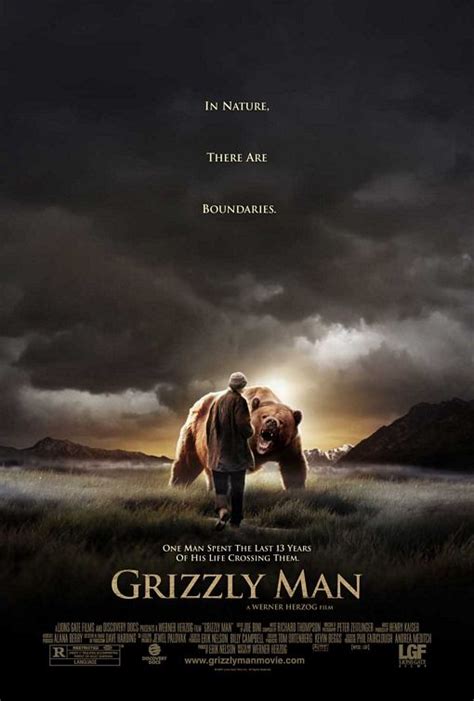The film ‘Grizzly Man’, directed by Werner Herzog, presents a stark and immersive portrayal of Timothy Treadwell’s life among Alaskan grizzlies. This documentary has stirred debates and provoked thought, leading us into the wilderness and deep into the human psyche. Herzog paints a complex picture of Treadwell, who spent thirteen summers in Katmai National Park living with and filming the bears. The footage, tragic and beautiful, serves as a reminder of the raw power of nature and the often misguided romanticism humans project onto it.
Herzog’s narrative compellingly showcases the duality of human fascination with nature and the inherent dangers of overstepping boundaries. Treadwell saw himself as the protector of these majestic creatures, but as one commenter aptly points out, ‘It doesn’t sound like they needed him as much as he needed them.’ This encapsulates the core tragedy of Treadwell’s story—his profound need for connection and purpose overshadowed the very real dangers his actions imposed on both himself and the bears.
From the comments, it’s evident that there’s a mixture of admiration and criticism. Some viewers respect Treadwell’s adventurous spirit and willingness to live outside societal norms, while others view his actions as reckless and irresponsible. One commenter, timonoko, who self-identifies as a real-life Grizzly Man, shared a personal anecdote about being ignored by bears during an Alaskan summer. His experience highlights the unpredictable nature of wildlife and subtly criticizes the romanticized view of human-animal interactions.
The discussions raise important questions about the human drive to explore and our desire to connect with nature at a primal level. Commenter tstrimple passionately defends Treadwell and others like him, stating, ‘They are trying to experience the world as humans throughout history have experienced the world.’ For many, this represents a noble pursuit, a way to break free from the constraints of modern life. Yet, this viewpoint is countered by those like troyvit, who argue that such pursuits often reflect arrogance rather than bravery, underscoring the thin line between adventurous spirit and foolishness.
Central to the debate is the impact of Treadwell’s actions on the bears themselves. Bears, as pointed out, do not need human intervention to thrive. Instead, interventions can lead to unintended negative consequences, such as the two bears being killed as a result of their encounter with Treadwell and his girlfriend. This underlines a critical point made by verinus: ‘Being stupid and selfish should not be celebrated but warned against!’ The intrusion into the wild for personal satisfaction, without regard for its impact, is a lesson in respecting boundaries and the natural order.
Beyond Treadwell’s personal narrative, Herzog’s documentary and the reactions to it offer broader reflections on the human spirit and our relationship with the wild. The intense curiosity that drives people like Treadwell is not solely tied to a desire for fame or recognition but often stems from a deeper need to find meaning in a world increasingly dominated by technology and urban life. Comments reveal a recognition of this quest for meaning, but also the accompanying dangers of naivety and unpreparedness.
Interestingly, discussions around Treadwell’s motivations and actions often veer into philosophical territories. Commenters like tstrimple see Treadwell and similar figures as ‘real hackers,’ pioneers in a metaphorical sense, pushing boundaries that the majority dare not. This imaginative comparison aligns with the idea of hacking life itself, tweaking and testing limits to understand what lies beyond conventional wisdom. However, as pointed out by others, this view must be tempered with the recognition of the tangible risks and consequences, both personal and ecological.
Finally, reflecting on Treadwell’s and McCandless’s (from ‘Into the Wild’) stories within this broader context, society must grapple with the allure and peril of such extreme pursuits. These stories are emblematic of a deep-seated cultural fascination with the wilderness and the purity it represents. Yet, the ultimate lesson may be one of humility—understanding our place within the natural order and recognizing the profound wisdom in approaching the wild with respect and caution. Treadwell’s story is a cautionary tale, an evocative reminder of the thin line between passion and peril, and the vital importance of respecting the world that exists beyond human control.


Leave a Reply